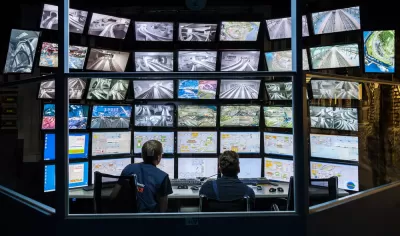Over the next two decades, bold estimates have local governments around the world spending over $41 trillion on "smart cities." But what are smart cities, and how do we measure return on investment?

Apparently, the future is now. According to some experts, "Cities around the world will invest a total of about $41 trillion over the next 20 years to upgrade their infrastructure and benefit from the network of connected devices known as the Internet of Things."
That astronomical figure is an estimate, but it's a telling one. Aneri Pattani writes, "Smart technology uses the Internet of Things to gather data, connect components across the city and impact multiple departments or services in order to improve people's quality of life. Spending on smart technology has grown from 0.7 percent of city IT budgets in 2005 to 4.1 percent in 2015."
Even smaller municipalities are investing in tech-oriented "solutions" created to address civic challenges. "The Center for Digital Government estimates U.S. cities will spend about $52.4 billion on technology in 2016. That is a 2.5 percent increase over their spending in 2015. The federal government will spend about $89.8 billion on technology in 2016, just a 1.5 percent increase over its spending last year."
Of course, there's no set definition for "smart cities," and no way to accurately measure the size of the market. At this early stage, it's also difficult to determine exact ROIs for new government technologies. Often, improvements to perceived quality of life can persuade cities to adopt, despite that uncertainty.
The article encourages public-private partnerships on new tech, going beyond selling a single "solution" and moving on. To bring in lasting public sector business, companies should be willing to provide guidance around implementation.
FULL STORY: Building the city of the future — at a $41 trillion price tag

Montreal Mall to Become 6,000 Housing Units
Place Versailles will be transformed into a mixed-use complex over the next 25 years.

Planetizen Federal Action Tracker
A weekly monitor of how Trump’s orders and actions are impacting planners and planning in America.

DARTSpace Platform Streamlines Dallas TOD Application Process
The Dallas transit agency hopes a shorter permitting timeline will boost transit-oriented development around rail stations.

Interactive Map Reveals America's “Shade Deserts”
Launched by UCLA and American Forests to combat heat-related deaths, the tool maps the shade infrastructure for over 360 U.S. cities.

Bicycles and Books — In Sacramento, Libraries Now Offer Both
Adult library card holders can check out e-bikes and e-trikes for up to one week.

Colorado Landfills Emit as Much Pollution as 1M Cars
Landfills are the third-largest source of methane pollution in Colorado, after agriculture and fossil fuel extraction.
Urban Design for Planners 1: Software Tools
This six-course series explores essential urban design concepts using open source software and equips planners with the tools they need to participate fully in the urban design process.
Planning for Universal Design
Learn the tools for implementing Universal Design in planning regulations.
City of Mt Shasta
City of Camden Redevelopment Agency
City of Astoria
Transportation Research & Education Center (TREC) at Portland State University
US High Speed Rail Association
City of Camden Redevelopment Agency
Municipality of Princeton (NJ)





























